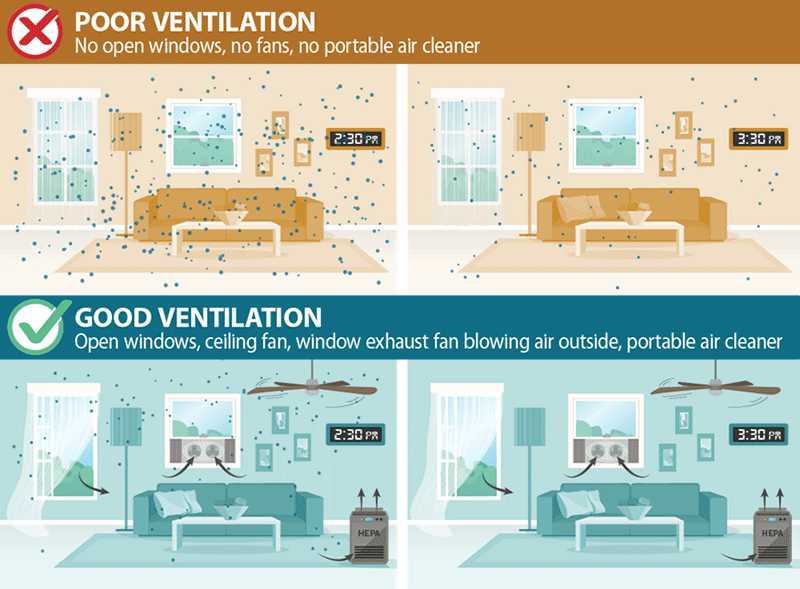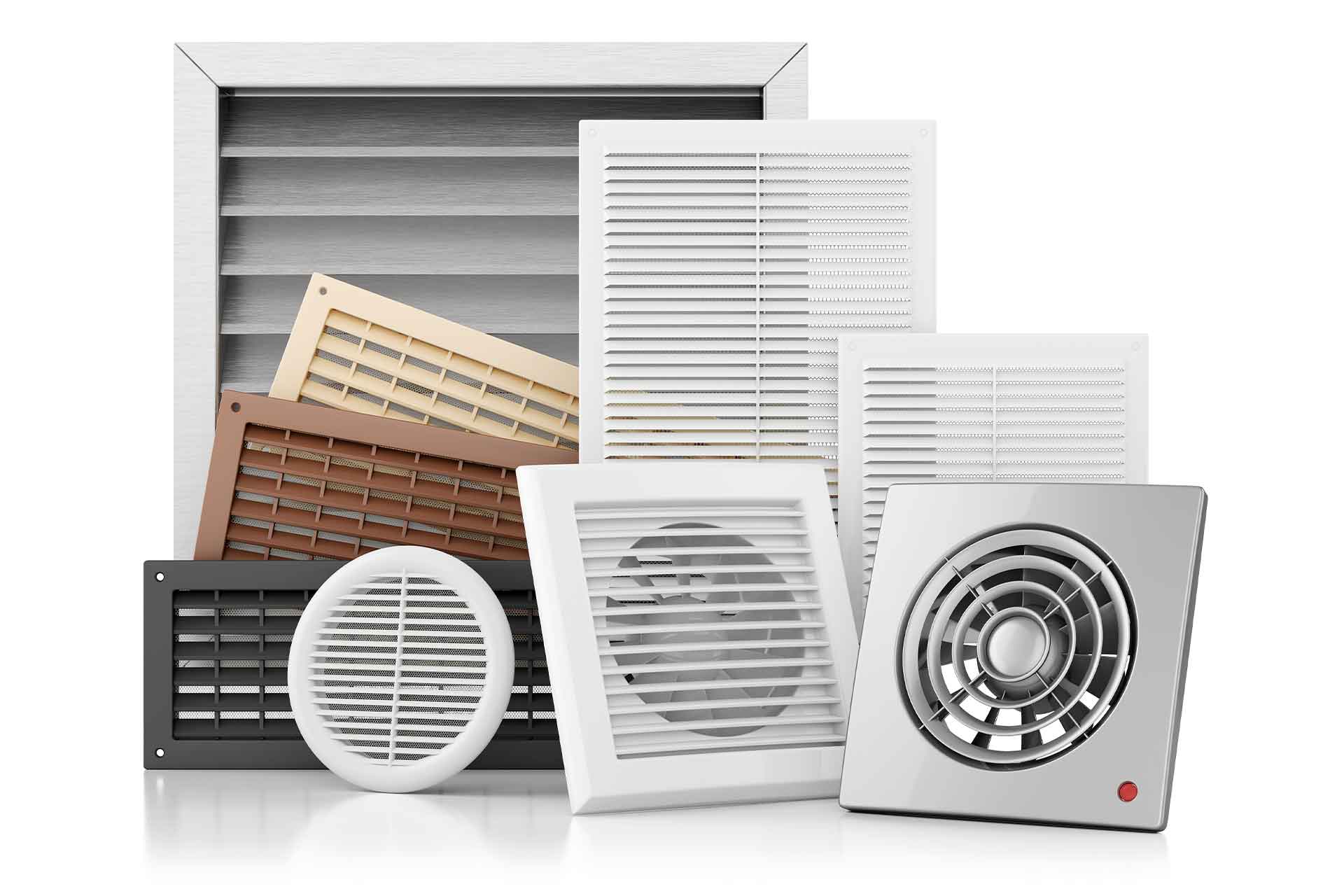The Long-Term Health Benefits of Home Ventilation Melbourne
Wiki Article
The Role of Home Air Flow in Protecting Against Mold and Indoor Allergens
Home ventilation is an important element in maintaining a healthy interior atmosphere. It controls moisture levels, which can stop the growth of mold and mildew and the accumulation of irritants. Many property owners forget the value of appropriate ventilation, frequently leading to hidden concerns. Comprehending exactly how air flow systems feature and their effect on air quality can be the trick to a healthier space. What actions can be taken to improve these systems properly?Comprehending Home Ventilation Equipments
While several house owners might ignore the value of ventilation, understanding home air flow systems is essential for maintaining indoor air high quality and protecting against mold growth - Home Ventilation Melbourne. These systems assist in the exchange of stale indoor air with fresh outside air, properly minimizing pollutants and wetness levels. Common kinds include natural air flow, which relies on wind and temperature level differences, and mechanical ventilation, which makes use of followers and ducts to manage airflow. Furthermore, balanced air flow systems combine both approaches to enhance air quality. Appropriately designed and maintained ventilation systems can assist control temperature and humidity, guaranteeing a comfy living setting. Homeowners should take into consideration elements like home format, occupancy, and environment when selecting a ventilation system to ideal match their demands and enhance overall air quality
The Effect of Humidity on Mold Growth
Moisture plays an important role in mold and mildew growth, making it a crucial variable for homeowners to keep an eye on. Mold thrives in atmospheres where humidity degrees exceed 60%, as these problems supply the dampness needed for spores to proliferate and sprout. High humidity can arise from numerous resources, including bad ventilation, water leaks, and cooking or bathing activities. When humidity levels continue to be raised, mold can create swiftly on natural materials such as fabric, timber, and drywall. House owners should make use of dehumidifiers and ensure proper air flow in areas vulnerable to dampness, such as restrooms and basements. Preserving indoor moisture between 30% and 50% can considerably decrease the danger of mold growth, adding to a much healthier living environment.Determining Common Indoor Allergens
Indoor atmospheres can harbor a range of allergens that affect wellness and comfort. Usual interior allergens include allergen, pet dog dander, mold and mildew spores, and plant pollen. Dirt termites thrive in bedding, carpetings, and furniture, eating organic material and adding to breathing problems. Animal dander, composed of little flakes from skin and hair, can activate allergies in sensitive people. Mold spores, usually present in moist areas, can multiply and influence air high quality. Additionally, plant pollen can infiltrate homes with open windows or on apparel. Identifying these irritants is crucial for maintaining a healthy indoor environment. Understanding of their presence allows house owners to take proactive procedures to minimize exposure and boost Home Ventilation Melbourne total indoor air top quality.Advantages of Appropriate Ventilation
Proper ventilation is essential for preserving a healthy and balanced indoor environment, as it aids to regulate air top quality and lower the build-up of contaminants. Adequate air movement facilitates the exchange of interior and exterior air, thus thinning down harmful compounds such as unpredictable natural compounds, allergens, and dust. This process not only boosts convenience but additionally adds to the total well-being of residents by decreasing breathing issues (Home Ventilation Melbourne). Furthermore, correct ventilation effectively controls moisture levels, lowering the probability of mold and mildew development and cultivating a drier setting helpful to wellness. In addition, it can improve energy efficiency by ensuring that heating and cooling systems run better, leading to lower energy expenses. In general, proper ventilation is a crucial element in promoting a healthy and safe space

Tips for Improving Home Air Flow
Numerous home owners might neglect it, enhancing home air flow is important for improving air quality and protecting against mold and mildew growth. One efficient strategy is to frequently open home windows to advertise cross-ventilation, enabling fresh air to circulate. Installing exhaust fans in shower rooms and kitchens can efficiently eliminate moisture-laden air, lowering humidity levels. House owners need to likewise consider making use of air cleansers with HEPA filters to catch irritants and pollutants. On a regular basis maintaining cooling and heating systems, consisting of changing filters, warranties come to a head air movement and effectiveness. Securing leaks around doors and home windows can avoid outdoors air from going into, which assists maintain a consistent interior atmosphere. Including houseplants can normally boost air top quality while including visual value to the home.Frequently Asked Concerns
Exactly how Typically Should I Tidy My Home Ventilation System?
Establishing how often to cleanse a home air flow system depends on numerous factors, including use and ecological problems. Home Ventilation Melbourne. Typically, specialists advise a detailed cleansing every three to five years to preserve ideal airflow and performanceCan Plant Kingdom Help Decrease Indoor Allergens?
Research study suggests that specific interior plants might help in reducing irritants by boosting air quality and raising moisture. Their efficiency differs, and maintaining a clean environment remains crucial for handling indoor allergens properly.What Kinds of Air Filters Are Ideal for Mold And Mildew Avoidance?

Are There Particular Ventilation Demands for Basements?

How Do I Know if My Ventilation Is Working Successfully?
To determine reliable air flow, one need to keep an eye on moisture degrees, check air flow via vents, and observe indications of condensation or stationary air. Routine assessments can suggest whether the system adequately circulates and exchanges indoor air.Recognizing how ventilation systems function and their impact on air top quality can be the trick to a much healthier living room. While numerous home owners might forget the importance of air flow, comprehending home ventilation systems is crucial for keeping interior air quality and stopping mold and mildew development. Common types consist of natural air flow, which counts on wind and temperature distinctions, and mechanical air flow, which utilizes fans and air ducts to regulate air flow. Correct ventilation is necessary for preserving a healthy interior environment, as it assists to regulate air top quality and reduce the build-up of toxins. Several home owners may overlook it, improving home air flow is crucial for improving air quality and avoiding mold and mildew development.
Report this wiki page